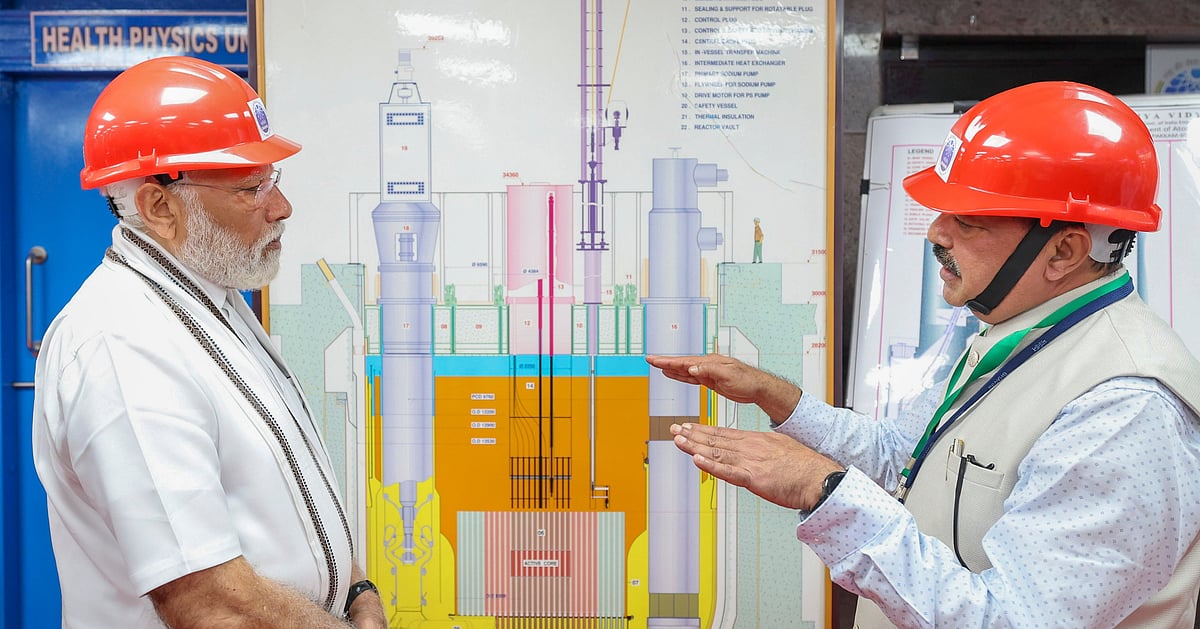 |
|
India has taken a momentous stride forward in its nuclear energy program with the Atomic Energy Regulatory Board (AERB) granting permission to operationalize the Prototype Fast Breeder Reactor (PFBR). This 500 MW sodium-cooled reactor, commissioned by BHAVINI, marks a significant milestone in the nation's quest for nuclear energy independence. The PFBR, the first of its kind in India, represents a major technological advancement by global standards, as acknowledged by former DAE Secretary and Atomic Energy Commission chairman Anil Kakodkar.
The PFBR, developed by the Bharatiya Nabhikiya Vidyut Nigam Ltd (BHAVINI), a public sector firm established in 2003, has been a long-awaited project, finally becoming a reality nearly 12 years after its initial deadline. It stands as a testament to the country's commitment to nuclear energy, particularly in the domain of fast breeder reactors. Fast breeder reactors, unlike conventional reactors, have the unique ability to “breed” more fissile material than they consume, making them an attractive option for sustainable nuclear energy generation.
The PFBR's operationalization has not been without challenges. Concerns surrounding the use of sodium as a coolant, a hazardous material, have been raised. However, the AERB, the regulatory body responsible for ensuring nuclear safety, has conducted extensive safety reviews and assessments. Their multi-tier safety review mechanism, complemented by periodic inspections and observations by a resident site observer team, has assured the safety and integrity of the project. The AERB has visited the plant and taken cognizance of detailed submissions and safety review outcomes before granting the permission, emphasizing their commitment to regulatory oversight.
The PFBR's journey to operationalization has garnered global attention. China, Japan, France, and the US have also explored fast breeder reactor technology, but due to concerns over nuclear energy, several programs have been shut down. India's commitment to this technology demonstrates its confidence in the future of nuclear energy and its willingness to invest in research and development to overcome the challenges associated with this innovative technology.
The PFBR is set to play a pivotal role in India's future energy mix. Its ability to produce more fuel than it consumes makes it a valuable asset for sustainable nuclear power generation. Moreover, the use of thorium in the later stages of the project holds promise for the long-term sustainability of India's nuclear energy program. As the PFBR progresses through its operational phases, it is expected to contribute significantly to India's energy security and technological prowess.
Source: Nuclear regulator gives go ahead to operationalise Prototype Fast Breeder Reactor
